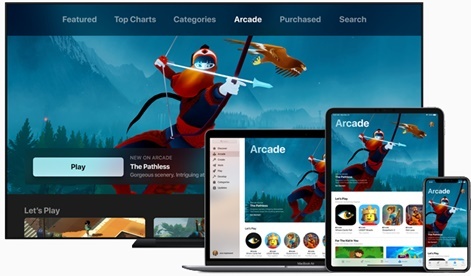Paul Barnes is MD EMEA at App Annie.
Apple’s recent announcement of Apple Services marked a new era for the tech giant. It marked its transition from a consumer tech hardware company to a fully comprehensive entertainment streaming service.
At its recent unveiling, the tech company announced it is sowing its seeds in the very industries it helped to create with the proliferation of smartphones: a shrewd move.
Apple is reported to have 1.4 billion active devices worldwide and an iPhone install base of 900 million. The boom of mobile apps has followed the rapid install of smartphones across the world and 2018 was another record-breaking year.
App Annie reported 194 billion mobile app downloads, an astounding $101 billion in consumer spend globally and the average user now spends up to three hours a day in apps.
What consumers want?
Mobile’s expansion is prolific, impacting every business in every industry by changing consumers’ daily habits through gradual, seemingly small changes to everyday transactions. From the way we consume content to how we bank, shop and date, 2019’s consumers are used to reaching for their mobile as a remote control for life.
As the install base of smartphones is rumoured to be nearing saturation, Apple is being strategic in future-proofing the value it offers to customers.
Steve Jobs is famously quoted for saying “Some people say, 'Give the customers what they want'. But that's not my approach. Our job is to figure out what they're going to want before they do. I think Henry Ford once said, 'If I'd asked customers what they wanted, they would have told me, 'A faster horse!'"
This move from Apple shows Tim Cook is carrying this legacy through in the company’s evolution.

Mobile apps have become so ingrained in our daily lives, that each year’s top app charts accurately reveal changing consumer habits like a zeitgeist zoetrope. Looking at these latest trends, it’s clear Apple is being strategic with its latest move into the subscriptions industries.
Rent-it-now is the new have-it-now generation driving a $122 billion app economy. In 2018, App Annie predicted that 2019 would see global consumer spend in entertainment apps grow 520 per cent, fuelled largely from in-app subscriptions in video streaming apps.
Mobile apps have become so ingrained in our daily lives, that each year’s top app charts accurately reveal changing consumer habits like a zeitgeist zoetrope.
Consumer spend on in-app subscriptions is predicted to (largely) fuel the two-times growth rate for apps outside of games versus games, (albeit games will represent nearly 75 per cent of total consumer spend).
What's best for developers?
However, while we’ve established this makes sense for Apple, what impact will the tech behemoth’s move have on the mobile games industry? If mobile games are being driven already by in-app purchases, does a gaming streaming service make sense for publishers?
Subscription mobile games individually offer more value each month, with fresh content and new challenges - in other words, incentives to keep paying. Apple Arcade, instead, offers entirely new games each month.
It sounds like a small change, and a great deal for gamers, but the challenge here is in how publishers find their footing. The majority of revenue in gaming [95 per cent-plus] is through in-app purchases. Gamers can download and play a game for free, but pay within the mobile gaming app to win extra bonus levels, new weapons, clues, etcetera to get ahead in the game.
With so many free games already available on the App Store to download every month, Apple will need a big incentive to pull people into its own platform at a fee.

In some ways, Apple Arcade’s success depends on the same values of Apple TV+, the value of its content. With games from LEGO already included in its platform, Apple will need to execute huge marketing campaigns in order to pull people in on the basis of individual games’ reputations (in the same way that Apple TV+ will lean on the reputation of its original shows and big names).
In fact, it was recently reported that Apple is investing around $500 million to sign games for Apple Arcade. Apple is even offering incentives for developers, who make their game an iOS exclusive or delay the launch of their titles on other platforms such as Google Play.
While Arcade is a new premise for avid mobile gamers, and a lot will hinge on the quality of the games they sign to the platform, the customer ultimately ends up with more choice again.
Not only are we going to see more original content and new games, but more competition and innovation inevitably leads to more choice for end users.





















